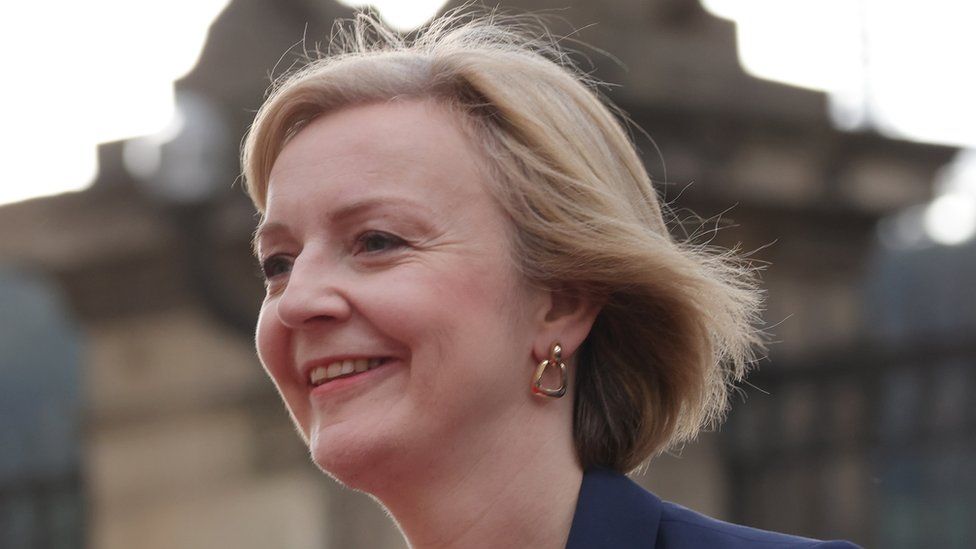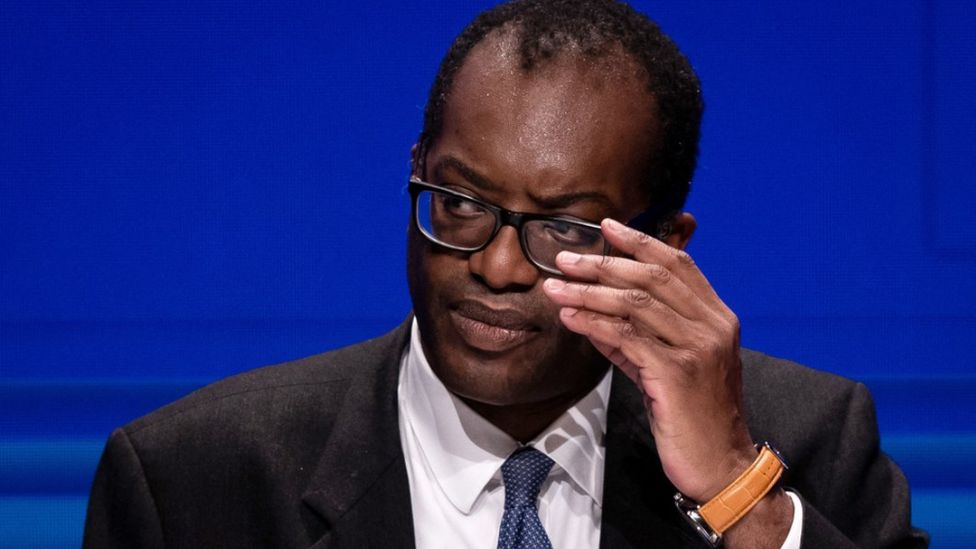Kwasi Kwarteng will bring forward his plan for balancing the government’s finances by almost a month to 31 October, in a bid to reassure markets.
The fiscal statement is expected to detail how the chancellor intends to pay for £43bn of tax cuts and cut debt.
An independent forecast of how the economy will perform in coming years will be published at the same time.
Mr Kwarteng had said he would wait for 23 November but changed tack after his mini-budget sparked market turmoil.
His refusal to publish a draft report by the Office for Budget Responsibility (OBR) to accompany the mini-budget on 23 September also rattled markets and some MPs.
The new date means Mr Kwarteng’s fiscal statement will be published before the Bank of England announces its latest decision on interest rates on 3 November.
The Bank’s Monetary Policy Committee (MPC) is widely expected to raise interest rates for the eighth time since last December with many economists forecasting a sharper rise than previous increases.
But Mel Stride, chairman of the Treasury Select Committee, tweeted that he hoped Mr Kwarteng’s decision to release the report earlier would result in a smaller rate rise.
He tweeted: “If this lands well with markets then MPC meeting on 3rd Nov may result in smaller rise in interest rates. Critical to millions of mortgage holders.”
The OBR, the independent budget watchdog, will now publish a report alongside Mr Kwarteng’s statement at the end of October. Its forecasts will give an indication of the health of the nation’s finances.
There was confusion last week after government sources briefed journalists that Mr Kwarteng would bring forward his fiscal statement to October, only for the chancellor and prime minister to contradict this a day later.
Quizzed on Tuesday by GB News, the chancellor said there had been no change. “People have been reading the runes and the pauses, it’s going to be the 23rd,” he said.
However, Treasury sources then clarified that the chancellor would, indeed, bring the statement forward and that it had simply been waiting to officially announce the change of date in Parliament.
Concerns that Mr Kwarteng’s tax plans were unaffordable prompted the pound to hit a record low against the dollar of $1.03 and the Bank of England to step in to stop pension funds from collapsing.

Image source, Getty Images
Since then the government has been forced into a series of embarrassing climbdowns under growing pressure from its own MPs.
Last Monday, Mr Kwarteng scrapped a decision to cut the top rate of income tax.
Prime Minister Liz Truss also faces a rebellion from her MPs after declining to say whether she would increase benefits in line with inflation next April.
Her approval ratings have plummeted since the mini budget. The prime minister says her tax cuts will boost the UK economy after years of lacklustre growth.
But there are fears the government will have borrow huge sums to fund this. The cost of government borrowing consequently jumped, as investors demanded higher rates of interest on UK government bonds.
It has fed through to the mortgage market where hundreds of products were pulled due to concerns about how to price these long-term loans.
Last week, interest rates on typical two- and five-year fixed rate mortgages topped 6% for the first time in over a decade.
‘Clearly nervous’
On Monday, the Bank of England announced measures to ensure an “orderly end” to an emergency bond buying scheme it was forced to launch after Mr Kwarteng pledged additional tax cuts on top of those outlined in the mini-budget.
Susannah Streeter, senior investment and markets analyst at Hargreaves Lansdown, said that the government and the Bank had launched “a two pronged attempt to calm markets” as the pound remained weak and government borrowing costs inched up again.
“Policymakers and politicians are clearly nervous about seeing a repeat of the mini-financial crisis unleashed following the presentation of the Truss administration’s slash and spend plans and fresh moves are being made to try and repair the damage,” she said.
“All eyes will be on the independent assessment of his spending plans, and the risk is that if the numbers don’t add up, the markets could take fright again.”
[This article is an adapted news story - the credits belongs to the original source article owner]
This post is adapted and was originally published on this site

